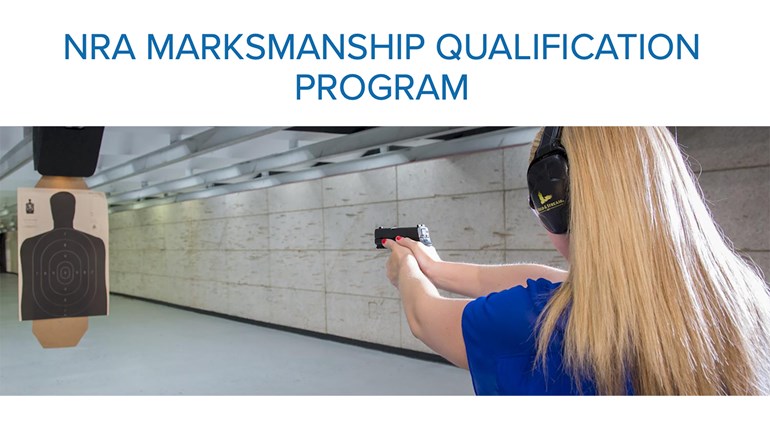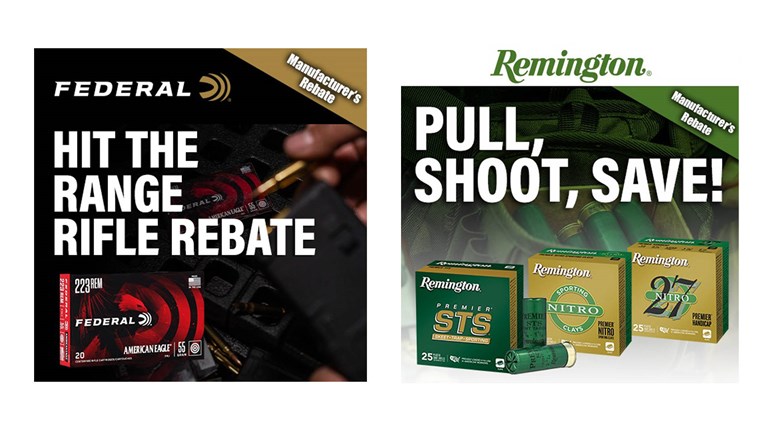
You may feel helpless in supporting the future of hunting, but regardless of your hunting and shooting experience you can play a pivotal role in continuing the tradition. Oftentimes it just takes an idea to nudge you into action. Read on and you may find that one of these categories fits your talent and know-how. Each of them can be a giant step toward mobilizing the next generation of hunters. You can do it in a big or small way, but every effort helps.
1. Become a firearm safety instructor. All shooting sports, including hunting, begin with a solid education in the safe handling of firearms. Many young hunters receive this training via state wildlife agency-sanctioned programs in initial hunter safety instruction.
Organizations such as the Boy Scouts of America provide youth with a well-rounded immersion in the outdoors, including shooting. These courses require certified instructors. Another leading shooting organization for youth is 4-H Shooting Sports. 4-H offers one of the finest, local shooting sports programs with scheduled practice and even competitive matches, and it too, requires certified instructors. Youth are exposed to a variety of shooting disciplines under supervised settings. These and more require certified shooting instructors and range safety officers. Sign up now for NRA safety or range officer certification.
2. Help out with a shooting sports program. One of the major ways to aid in a shooting sports program was previously highlighted. If you don’t feel you have teaching skills, no worries: You can pitch in to help in a variety of support roles. Instructors are just one of the human components to help any shooting sports program succeed. Just as critical is an army of behind-the-scenes personnel.
Hunter safety courses require testing, and that means test correctors to put a stamp of approval on passing students. Programs that include competition need score keepers and statisticians to track shooting records. Adults are needed to disseminate firearms, safety gear, ammunition and shooting accessories. An extra set of eyes helping the range safety officer and any instructors is always valuable, too, with an area full of active, new shooters.
Another way to help is to simply volunteer as a driver. Urban students may require shuttle service to a rural shooting facility or a group of new hunters may require transportation to a game farm for a first hunt. Your volunteer hours could lead to a recruitment of new hunters.
3. Become an advocate. Advocate for a shooting program in your school or a program in your local shooting sports organization to kick-start new enthusiasts. The NRA has a slew of ways to engage new hunters and shooters including its NRA Marksmanship Qualification Program. The National Shooting Sports Foundation has an initiative called "First Shots" and offers helpful assistance in hosting this program at your local range.
The National Archery in the Schools Program (NASP) has established a very successful foundation in public schools. It could be ongoing in your school district already; if not, you can suggest it to the school board. NASP is a partnership between state departments of education and wildlife to provide archery instruction to students from grades 4-12. Introduced via physical education curriculums, NASP has been employed by more than 14,000 schools and reached 18 million youth in 47 states, eight provinces and 11 countries. Plus, you can become a certified instructor to help out. More than 90,000 have already stepped up for certification.
Another advocate role to never be taken lightly is legislative overwatch. Be watchful of legislation on the national, state and local scene that could affect your Second Amendment rights and hunting privileges. Many anti-hunting organizations slip in small, unnoticed bills that can be built upon in future legislation, limiting your ability to hunt or even access public lands. You can lobby, phone your legislators and by all means vote, but be a legislative advocate.
4. Mentor an interested youth or new hunter. This category is something nearly every hunter can and should do. Linking up with an interested youth is as easy as talking to the neighborhood youngster or even an adult that continually eyes your hunting exploits. Get permission from an adult if the prospect is a youth and then invite them along, young or old. Most states now have mentor hunting programs that allow new hunters to actually hunt alongside an adult. Take advantage of that opportunity since many don’t require hunter safety certification first.
Finding an interested new hunter may not be that easy for some, but most states are adding programs to help connect seasoned hunters with new hunters interested in learning. The Alabama Department of Conservation and Natural Resources is just one example of a state agency working to pair you with a new hunter. Go online to the Adult Mentored Hunting Program page and sign up. You will be contacted when a pupil requests assistance.
If you embrace digital speed, simply download the Powderhook hunting app. It has a nationwide network that not only is helpful in becoming a mentor, but aids you in finding new hunters in your area.
5. Donate to conservation and shooting sports causes. Your annual membership fee to the NRA doesn’t all go toward fighting the gun grabbers inside the Beltway. It helps fund numerous programs to educate and facilitate new shooters into our ranks. The same is true of organizations such as the previously mentioned National Shooting Sports Foundation. Dollars work toward lobbying efforts, but also range assistance and shooting programs.
You already know that hunters raise more money for wildlife and conservation than any other segment of America. In addition to contributing tax dollars collected via the Pittman-Robertson Act of 1937 that directly work toward wildlife management, you have the opportunity to join any number of conservation organizations. Nearly all include youth- and new-hunter programs to boost enrollment in the hunting population.
The National Wild Turkey Federation stands out with its outreach via the JAKES program. Similar outreach is available through organizations such as Ducks Unlimited, the Mule Deer Foundation, the Rocky Mountain Elk Foundation, Pheasants Forever and others. Whether the strategies directly introduce new prospects to hunting or encourage them to assist with a conservation effort such as planting trees or setting up nesting boxes, it spikes interest in the outdoors. It’s just one more step to becoming a responsible hunter.




































